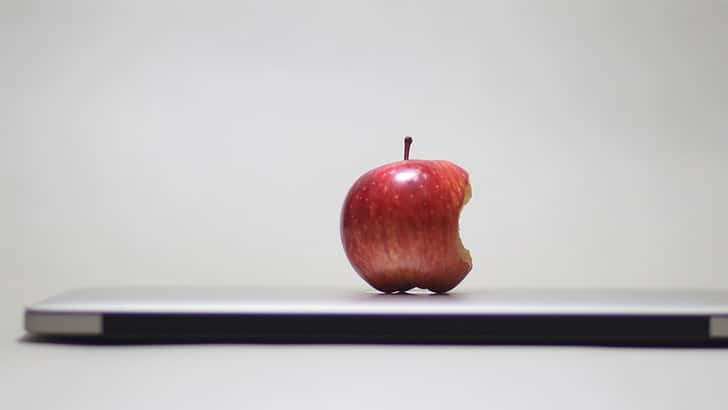Discovered about 750,000 years ago, apples continue to be the most nutritious fruits available today. However, like anything else good, they have their side effects — hunger.
Eating an apple can cause your stomach to grumble, even if you’re not hungry. Why?
You may feel hungry after eating an apple as it can cause your blood sugar to drop. Apples contain healthy and nutritious compounds, from vitamins and minerals to dietary fiber. However, apples are high in carbs and sugar (a medium apple has around 22g of carbs), and low in protein which helps you feel full.
Why Do Apples Make You Hungry?
You may think eating apples will help you feel fuller and less hungry, but this isn’t what happens in real life.
Once you start to digest an apple, your blood sugar levels increase, causing an insulin spike, which makes you feel hungry again.
Apples belong to the fruit family and contain many carbohydrates since it’s an organic compound.
Thus, when you consume the fruit, the body turns it into energy for its use, thus leaving you with an empty feeling in your stomach.
What’s the Best Way to Eat an Apple?

If you don’t want to feel hungry soon after eating an apple, it’s a good idea to pair it with some protein.
Peanut better is the perfect accompaniment for an apple, since it’s high in fat and protein. This helps you feel more satiated for longer!
You could also try having some nuts or yogurt alongside your tasty apple.
What Is Best to Eat With Apples?
Apples are a great fiber source, keeping your digestive system moving. Thus, eating apples with some protein or fat increases the nutrients they absorb.
Some of the fruits to eat with apples are:
- Nuts are a great way to add protein to your apples.
- Almonds and apple consumption can improve blood glucose levels and reduce the risk of diabetes development.
- Walnuts and macadamia nuts are also great for boosting your protein intake.
Additionally, fruits such as the apricot, date, pear, pineapples, red currant, and quince pair well with apples, giving a sweet and nutritious flavor.
Do Apples Help With Digestion?

The fiber and water content of apples can make it easier for your digestive system to absorb vitamins and minerals from food.
Additionally, apples contain 2-3% fiber, which may help to prevent constipation. Studies have also found that eating apples before meals may aid digestion.
It’s excellent news if you get cramps or bloating after meals.
Apples are beneficial only when eaten as part of a balanced diet that contains other nutrients. The fruit will not make you feel full if you don’t consume enough calories to maintain your hunger.
What Are the Best Fruits to Suppress Hunger?

To suppress hunger, or if you’d like some ideas for foods to have alongside your apple, consider adding some other delicious fruits to your diet.
Fruits with nutrients, vitamins, and minerals can help you feel full for longer without the added calories or fat.
Some of these fruits include:
Fiber-rich fruits like strawberries, blueberries, raspberries, and blackberries might help you feel fuller for longer.
Berries are also low in sugar and high in antioxidants, making them an excellent snack for people trying to lose weight.
Grapes are another excellent choice for suppressing hunger. Grapes are a great snack for anyone trying to lose weight since they are low in calories and fiber.
They are also packed with antioxidants and vitamins, making them great for your immune system.
Bananas are a great fruit to suppress hunger. Bananas are high in fiber and potassium, making them an excellent snack for people looking to lose weight.
They also have vitamins and minerals, perfect for boosting your immune system.
Include apple fruits in your daily diet for optimal health. The fruits are all low in calories, high in dietary fiber, and packed with essential vitamins and minerals.
Eating these fruits as a snack can help keep you fuller for longer.







